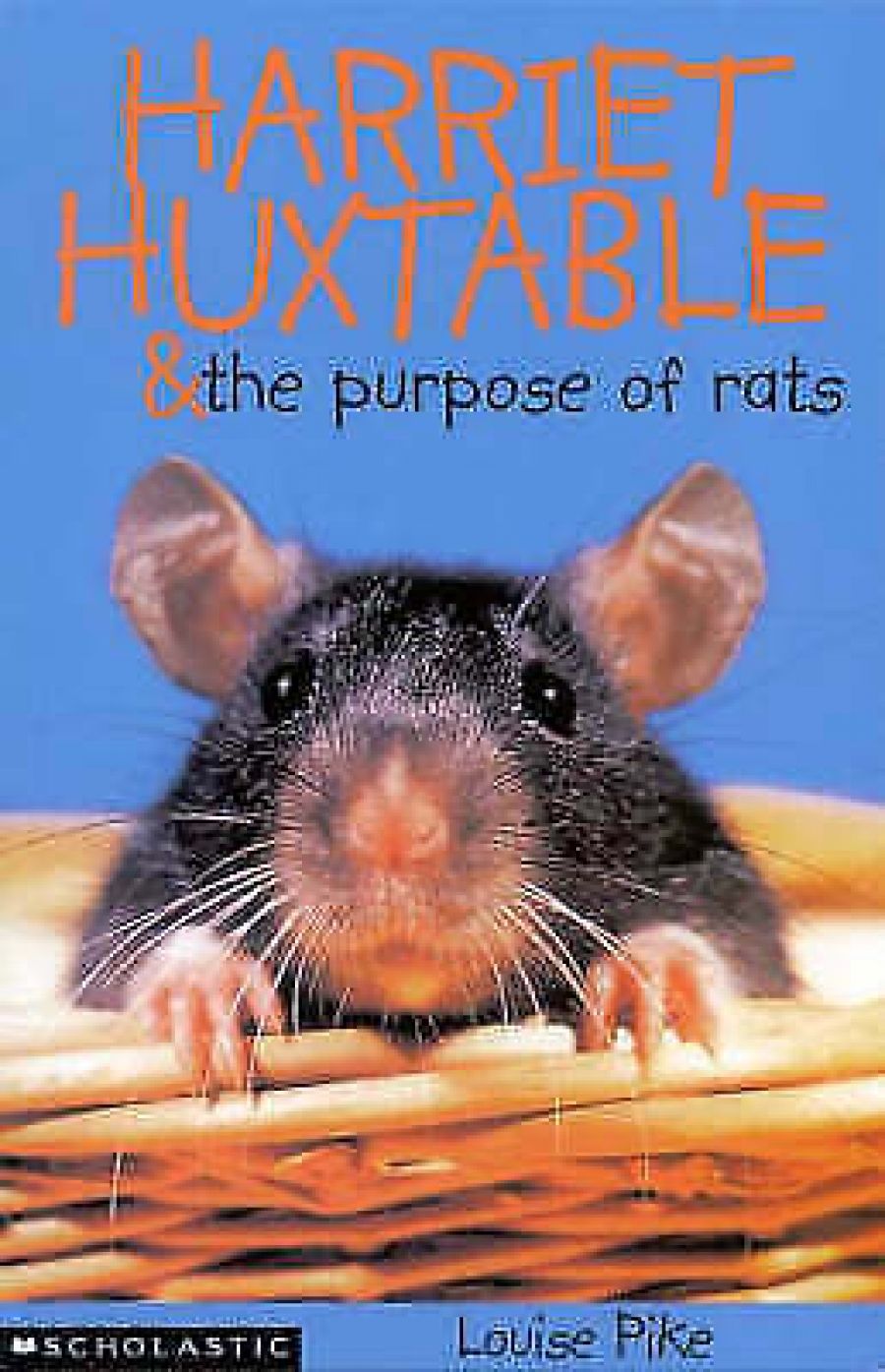
- Free Article: No
- Contents Category: Children's Fiction
- Review Article: Yes
- Article Title: Family Business
- Online Only: No
- Custom Highlight Text:
At school assemblies, when I was ten, I was required to recite a pledge which ended with the words ‘and cheerfully obey my parents, teachers and the law’. The novels reviewed here are all concerned with family, and the way in which young people operate within and outside it.
- Book 1 Title: Harriet Huxtable and the Purpose of Rats
- Book 1 Biblio: Scholastic, $11.95 pb, 136 pp
- Book 1 Cover Small (400 x 600):

- Book 1 Cover (800 x 1200):

Are You Listening? (Lothian, $12.95 pb, 159 pp) asks Nicky of her brother and friends. Her mum is hearing rather too well, being over-protective of the eleven-year-old narrator. Nicky manages a precarious balancing act between home and school. The schoolgirl’s world of who’s in and who’s out is well portrayed. Perhaps it is the strain of dealing with it that causes Nicky to be suddenly given to outbursts of truth-telling: very public episodes. The mixture of honesty and venom in the verbal attacks shocks and alienates their victims. Various methods are tried to modify Nicky’s behaviour. But the cause of the involuntary frankness is stranger than anyone could guess. Nicky is real, and the family setting rings true. The threshold between childhood and adolescence can be a minefield of conflicted loyalty and changing opinion, and the author captures this well. The ending is a little contrived, but will not seem so to its intended readers. Sarah Walker’s If Only (Hodder Headline, $16.95 pb, 198 pp) recounts the effect of a senseless shooting on the lives of four teenagers. The bulk of the narrative is seen through the eyes of Cara. She is in the late-teenage world where life is lived away from the family home and merely endured within it. She and Jessica have boyfriends who are also friends. This makes for the classic Aussie courtship: the girls flopping on beds and reading magazines, while the boys veg in front of videos or fiddle with the car. Cara’s vague dissatisfaction with the set-up, combined with disturbing feelings for her boyfriend’s mate Danny, are pushed into the background by the shocking killing of a classmate at a service station – the servo where the boys had gone to buy snacks just moments before:
She sighed. How quickly life could change. How easy it was to talk about what you’d do when it wasn’t happening to you personally.
A week ago, if someone had described the situation to her, she would have said instantly that she’d go to the cops. Now look at her, making anonymous phone calls on behalf of a guy who should know better than to hide from the police. Life was so complicated.
The pace of the action is maintained by the author, and the issue of family loyalty and definitions of criminal behaviour is explored. The ending won’t disappoint teenaged soap fans.
Arthur Bootle Wilbraham has many voices. Matt Svendsen has used contemporary newspaper reports, biblical quotes and song lyrics to help tell his story in Poison under Their Lips (Lothian, $14.95 pb, 208 pp). Wilbraham has joined the Queensland Native Mounted Police at the age of eighteen. His journal details his homesickness, self-doubt and first infatuation – as well as the commission of crimes against the indigenous population. The variety of sources contributing to the narrative do not diminish the clarity of the picture of Arthur and his time. Rather, they strengthen and give authenticity to an horrific story. The author is to be congratulated on presenting this material to young adults of the twenty-first century. They may find it puzzling that Arthur, at an age when they can drive, drink and vote, still sees himself primarily as the son of his parents. His exposure to shocking adult behaviour strikes us with the same force as it does him, and the resulting tragedies resonate.
This year the Tim Winton Award for Young Writers attracted entries from 1400 young people in Western Australia. Some winning entries of past years have been compiled in Destination Unknown (FACP, $14.95 pb, 108 pp), edited by Alwyn Evans. Winton says in his foreword: ‘In these stories, I see young people searching for themselves, enjoying their language, puzzling things out and trying to make sense of their world by using memory and imagination as people have always done.’ Young writers will be encouraged by reading this work, and the brief biographies are fascinating.


Comments powered by CComment